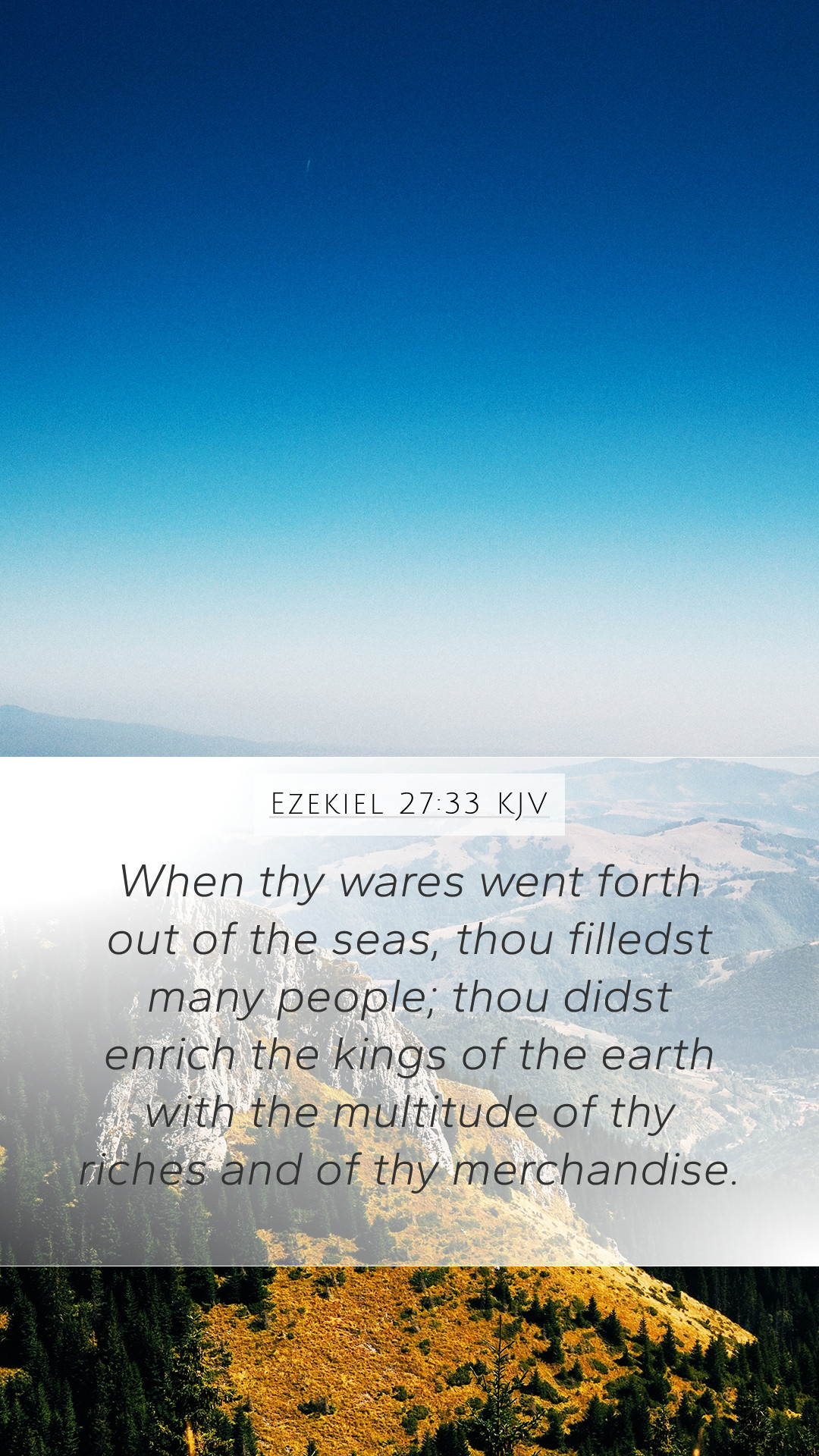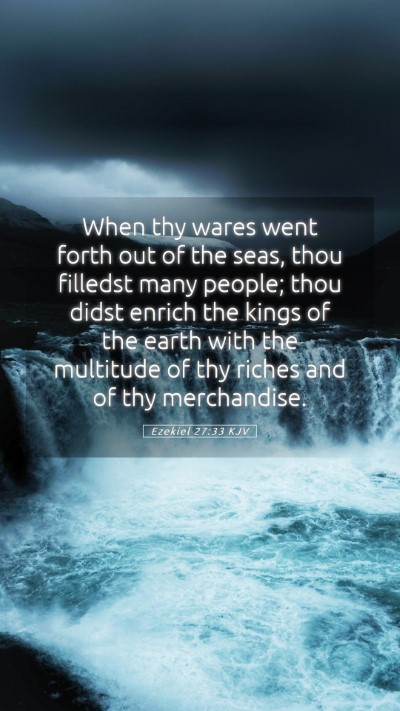Ezekiel 27:33 - Commentary and Insights
Bible Verse: Ezekiel 27:33
"When your wares went out of the seas, you filled many peoples; you enriched the kings of the earth with your merchandise."
Understanding the Context
The chapter in which this verse appears is a vivid portrayal of Tyre, a prosperous trading city known for its commerce by the sea. Ezekiel uses this imagery to illustrate both the wealth generated and the eventual downfall of Tyre, indicating a deeper spiritual and moral lesson for the people of Israel and others.
Verse Analysis
This particular verse reflects on the influence and riches gained through trade. Let's break it down using insights from several distinguished commentaries.
Matthew Henry's Commentary Insights
Henry emphasizes the wealth and prosperity Tyre brought to others, highlighting the city’s global influence. He notes that while material wealth was abundant, it led to a false sense of security. The essence of this verse reveals not just economic prosperity but also the moral and spiritual decline that often accompanies such affluence. In Henry's view, this serves as a cautionary tale against reliance on material riches.
Albert Barnes' Exegesis
Barnes interprets the verse to denote the extensive trade relationships Tyre maintained across nations. He points out how the success of Tyre enriched both its merchants and the kings of surrounding regions. This wealth, however, is temporary and ultimately leads to judgment. He aligns this with the central biblical theme of accountability and the fleeting nature of worldly successes.
Adam Clarke's Perspectives
Clarke offers a detailed exploration of Tyre's maritime trade and its significance in ancient commerce. He asserts that the verse illustrates how Tyrian merchants exerted influence over other nations through lavish goods. Clarke highlights that while this trade enriched the kings economically, it often came at the expense of spiritual integrity, echoing the warning found in scripture regarding prioritizing wealth over righteousness.
Spiritual and Moral Lessons
- The Illusion of Security: The wealth referenced may foster a false hope in materialism, distracting from the need for spiritual welfare.
- The Accountability of Nations: Just as Tyre is held accountable for its actions, nations today are also warned about the moral implications of their pursuit of wealth.
- Temporary Nature of Material Wealth: The glow of riches is fleeting, stressing the necessity for eternal values over temporal gains.
Relevance Today
As we navigate an age driven by commerce and material wealth, the lessons of Ezekiel 27:33 resonate profoundly. In our Bible study groups or online Bible study sessions, we might reflect on how this ancient text mirrors contemporary societal values and warns against potential pitfalls in the pursuit of economic gain. The call for applying biblical principles concerning wealth and morality is ever relevant.
Related Cross References
- Isaiah 23:1-18: Details the judgment on Tyre.
- Revelation 18:11-19: The fall of Babylon, often compared to Tyre.
- Jeremiah 25:22: Mentions of the kings of the nations and their administrations.
Conclusion
In conclusion, Ezekiel 27:33 serves as a profound reminder of the relationship between commerce, influence, and moral responsibility. The insights derived from various commentaries deepen our understanding, encouraging a reflective approach to scripture analysis and biblical exegesis. By examining the meaning of Bible verses like this one, we not only uncover historical truths but also apply these lessons to enhance our spiritual journeys.
Further Study Recommendations
For those interested in deeper Bible study insights, consider exploring the following:
- Bible Study Tools: Utilize online resources for extensive commentaries.
- Bible Study Guides: Engage in lessons that connect historical context with modern application.
- In-depth Bible Verse Analysis: Focus on other complex passages to enrich your understanding.


